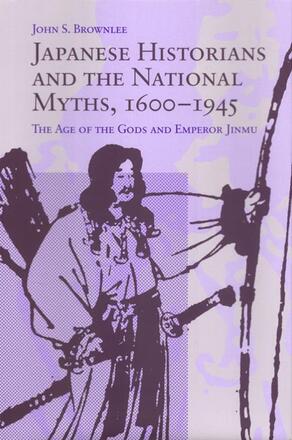
Japanese Historians and the National Myths, 1600-1945
The Age of the Gods and Emperor Jinmu
Description
In Japanese Historians and the National Myths, John Brownlee examines how Japanese historians between 1600 and 1945 interpreted the ancient myths of their origins. Ancient tales tell of Japan's creation in the Age of the Gods, and of Jinmu, a direct descendant of the Sun Goddess and first emperor of the imperial line. These founding myths went unchallenged until Confucian scholars in the Tokugawa period initiated a reassessment of the ancient history of Japan. These myths lay at the core of Japanese identity and provided legitimacy for the imperial state. Focusing on the theme of conflict and accommodation between scholars on one side and government and society on the other, Brownlee follows the historians' reactions to pressure and trends and their eventual understanding of history as a science in the service of the Japanese nation.
Reviews
Brownlee offers the first full treatment of historical perspectives on the central Japanese creation myth .... Soundly researched with a wealth of Japanese sources, this is an important book, useful to specialists and nonspecialists alike.
- C.A. Desnoyers
This work would constitute an excellent introduction to the modern history of the discipline of Japanese history up to the end of the Pacific war.
- Herman Ooms
Brownlee is careful not to condemn historians working under different conditions at different times. ... Yet he convincingly demonstrates the pitfalls of state-controlled education. And he is concerned about his contemporary Japanese colleagues, warning that they ‘do not appreciate the perils of misstatement and of failure to speak out.’ His highly readable book is a vivid testimony that the history of history can be just as fascinating as history.
- Florian Coulmas